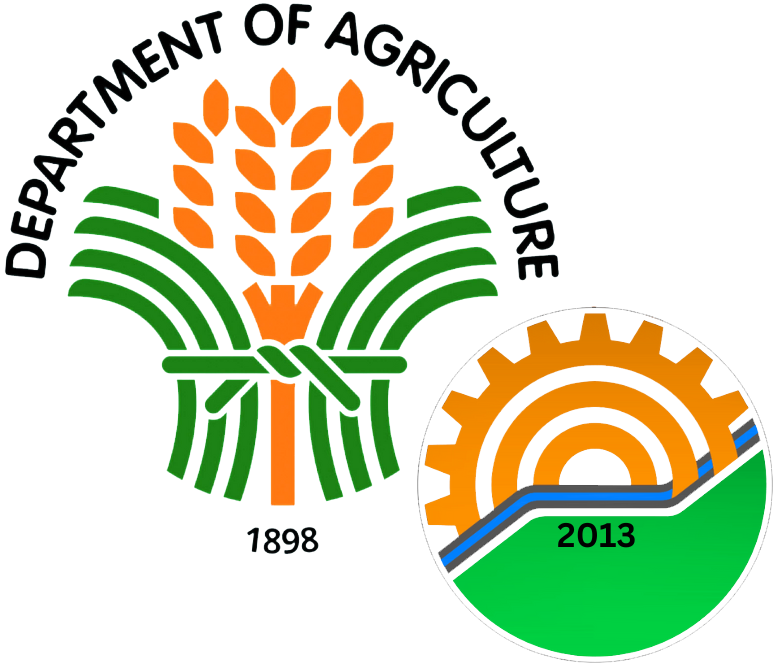
The Department of Agriculture – Bureau of Agricultural and Fisheries Engineering (DA-BAFE) has officially announced the start of the implementation of the Government Internship Program for Agricultural and Biosystems Engineering Youth (GIP for ABE Youth) beginning this month.
DA-BAFE Director Ariodear Rico announced the kick-off of the internship program that aims to augment the delivery of agricultural and biosystems engineering services in support to the implementation of agri-fisheries mechanization, small scale irrigation and farm-to-market roads, post-harvest facilities, and other agri-fisheries infrastructure projects of DA.
“In my capacity as chairman of the Professional Regulation Commission – Board of Agricultural and Biosystems Engineering, I personally appealed to Secretary Bello, who was the guest of honor during our oath-taking ceremonies two years ago, to help realize this internship program,” Director Rico said. “This is now the start of our partnership and l am looking forward to the continued implementation of this program.”
Dir. Rico enjoined the focal persons from DA – Regional Agricultural Engineering Divisions (RAEDs), Department of Labor and Employment (DOLE) regional offices, Sugar Regulatory Administration (SRA), Philippine Fiber Industry Development Authority (PhilFIDA), and Philippine Council for Agriculture and Fisheries (PCAF) who participated in the GIP for ABE Youth meeting on April 8, 2021 to share updates, issues and concerns, and challenges encountered in the implementation of the program.
A memorandum of agreement (MOA) between DA and the DOLE signed by Agriculture Secretary William Dar and Labor Secretary Silvestre Bello III on October 30, 2020 formalized the deployment of hundreds of young agricultural and biosystems engineering graduates and licensed ABEs to participating DA agencies, regional field offices, and projects nationwide under the DILG’s Government Internship Program (GIP).
Sec. Dar issued Memorandum Circular No. 34 on November 10, 2020 outlining the program implementation, duties and responsibilities of DA-BAFE and DA regional field offices, bureaus, and attached corporations, as well as requirements to qualify under the internship program.
On February 18, 2021, Dir. Rico cascaded a memorandum on the guidelines on the deployment of GIP for ABE Youth interns. He issued another memorandum on March 1 regarding the endorsement of the first batch of approved interns this year.

The first batch of 110 ABE Youth interns will be deployed from March to August, and another 110 for the second batch from September to December 2021 as approved by DOLE. Seventy-eight GIP interns have already been deployed in SRA Region 2, PhilFIDA (Regions 1, 9, and 11), and DA regional field offices nationwide as of April 8, reported Engr. Janice Vargas, chief of the Standards Regulation and Enforcement Division of DA-BAFE.
The remaining interns are still under processing and approval of DOLE but are expected to deployed this month. Four interns of PhilFIDA NCR/Region 4 have attended orientation at DOLE but their deployment was deferred due to the Enhanced Community Quarantine (ECQ). The second batch of interns will be finalized in July, said Engr. Vargas.
Six GIP interns in Ilocos region (Region I) were deployed on March 22 and underwent orientation regarding their work plan. The DOLE regional office conducted an orientation on March 29. The interns are tasked to update the municipal ordinances, consolidate RAED documents specially on FMR and machinery documents for ABEMIS encoding. The workplan specifies tasks for the GIP interns namely: 1) to assist in NAFMP (National Agricultural and Fishery Mechanization Program), RAFMP (Regional Agricultural and Fishery Mechanization Program), and FMRNP (Farm to Market Road Network Plan); 2) to assist in monitoring and enforcement of Certificate of Conformity (CC) and Permit to Operate (PTO); 3) to assist in the implementation of Registration of Ownership of Agricultural and Fishery Machinery; and 4) assist in the development, establishment, and maintenance of ABEMIS.
In Cagayan Valley (Region II), all of the nine approved GIP interns were deployed in LGUs on April 5 to conduct registration of ownership and inventory of machinery, and to assist Engineering Plans, Designs, and Specification Section (EPDSS).
In Central Luzon (Region III), seven interns were oriented and trained on RAFMES (Registration of Agricultural and Fisheries Machineries and Equipment System) and geo-tagging before deployment in municipal LGUS where they are assigned to assist in RAFMES, NAFMP, FMRNP (Farm to Market Road Network Plan), and machine inventory.

In MIMAROPA (Region IV-B), seven GIP interns will be deployed on April 16 and will undergo orientation on April 19.
In Bicol Region (Region V), five out of the six approved interns were deployed on March 30 and April 5. One intern is due for replacement and awaiting submission of documents to the DOLE regional office. The GIP interns are assigned to conduct machine inventory.
In Western Visayas (Region VI), six interns were deployed on March 15 and underwent orientation during the first week. The interns were assigned to do field-work in after-sales monitoring of MFADDIES and end-users on the second week, and to RAFMES on their third week.
In Central Visayas (Region VII), six interns are still processing their requirements for approval of the DOLE regional office, and are not yet deployed. They are having difficulty in submission of documentary requirements because most of them reside in Bohol but will be deployed in Cebu and Negros. The interns will undergo orientation before deployment to the municipal LGUs to conduct inventory of machinery.

Dir. Rico emphasized that six GIP interns in Eastern Visayas (Region VIII) who started on March 23 must perform agricultural engineering services such as project validation and RAFMES rather than packing seeds and receiving documents in the information section.
In Zamboanga Peninsula (Region IX), six interns have been deployed in RAED on March 22 to do machinery inventory and assist in project monitoring.
Five interns have been deployed in Northern Mindanao (Region X) on April 5 and were oriented in the functions of RAED as well as other sections. The interns will be assigned to work in fourth to sixth class municipalities to conduct inventory of machinery, assist in the promulgation of ordinances on registration of machinery ownership and validation of farm-to-market road projects. Municipal LGUs where interns will be assigned are encouraged to create ABE groups.
In Davao region (Region XI), the regional memorandum of understanding (MOU) for the implementation of GIP ABE Youth has been signed by the regional directors of DOLE-XI, PhilFIDA-XI, and DA-RFO XI. Virtual and face-to-face orientations were conducted for the six interns deployed on March 29. The interns were assigned to assist in RAFMES, field service and project validation (in preparation for the Mandanas ruling), project proposals, and preparation of engineering designs and plans. Their nature of work mirrored the RAED functions.
The focal person in Soccsksargen (Region XII) has coordinated with the heads of LGUs on participation in GIP Youth, however none of them accepted the interns. Thus the six interns were instead assigned in the DA RAED (two per section) on March 8. The interns were deployed to assist in field surveys, SPIS, validation of FMR projects, monitoring of on-going projects, AMTEC testing, and inventory of machinery.

Six interns have been deployed in the Cordillera Administrative Region (CAR) on March 15, four of them are deployed in RAED and the two are in APCO offices to assist in updating the database of project proposals, testing of machinery, pre-construction meetings, project monitoring, validation, and technical survey.
Three GIP Youth that were allotted to the Sugar Regulatory Administration (SRA) have withdrawn their applications once they found out that they will be deployed in Quezon City due to the COVID-19 pandemic. One intern was deployed in an LGU in Isabela on April 5.
PhilFIDA deployed a total of eight interns: one in Region I on April 5, one in Region IX on March 22, one in Region XI on March 29, one in Region VI (still for processing and approval of DOLE Region VI), and four in NCR/Region IV-A (deferred deployment due to Enhanced Community Quarantine). The interns are assigned to assist in the preparation of the design of nursery; review infrastructure such as protected nurseries, greenhouses, drying sheds, shearing shed; validate machinery in ABEMIS and infrastructure submitted to PCAF; and assist in accreditation and data gathering.
Upon hearing the updates and reports of each region and participating agencies, Dir. Rico instructed the GIP Youth focal persons to work-out the employment so that LGUs would absorb the interns after completion of the program in six months, as indicated in the terms of reference. DA-RAEDs and other DA units are directed to monitor the activities of GIP interns and ensure that their tasks are related to agricultural engineering services.###Marshall Louie Asis, DA-BAFE/ Photos courtesy of DA-RAEDs (Published on April 14, 2021)















